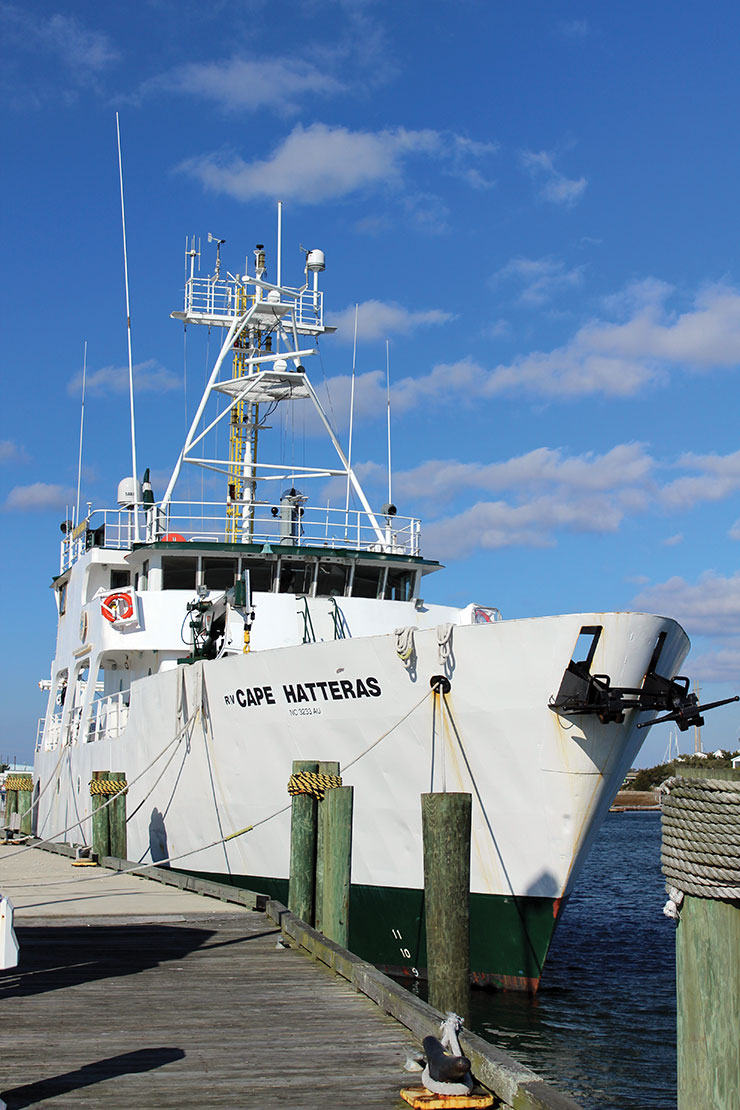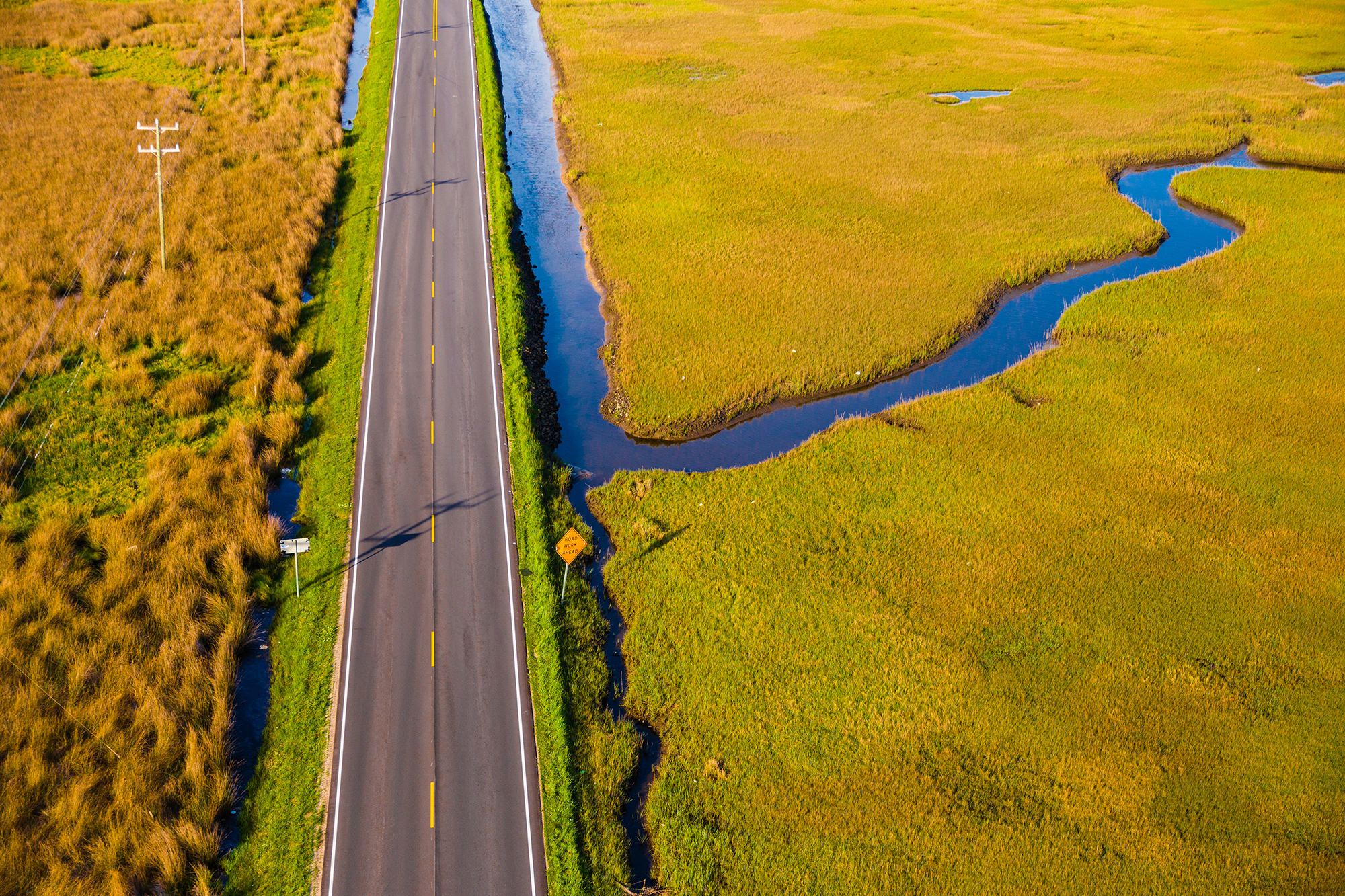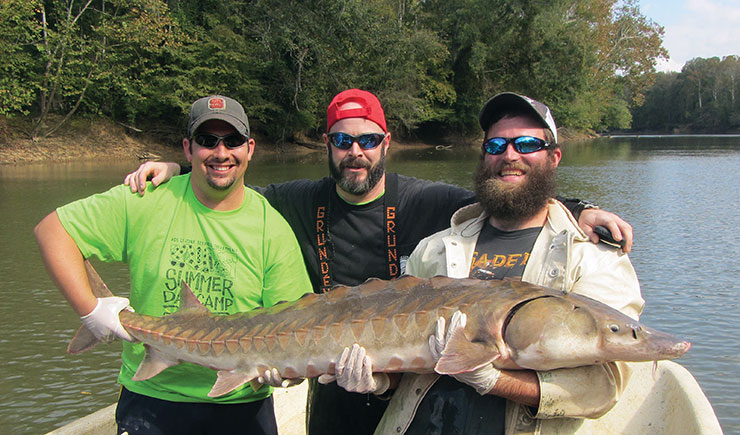FROM THE EXECUTIVE DIRECTOR: Strong Science + Engaged Communities = Sea Grant Impacts

I am having a busy spring learning the ropes at North Carolina Sea Grant. I tip my hat, however, to our many collaborators across the state who have been even busier pulling together interdisciplinary proposals in response to our multiple calls for research projects.
We have a strong batch of preproposals for our Sea Grant core funding of two-year projects. That process is outlined on page 9. Also, a full plate of new and interesting Fishery Resource Grant and Blue Crab and Shellfish Research projects will be starting soon. You will learn more about them in the next issue, or check www.ncseagrant.org.
Such interinstitutional, collaborative efforts among university researchers, fishermen and local coastal decision makers continue to reinforce Sea Grant’s role in bringing diverse expertise together to address coastal needs.
Sea Grant’s broad integration across the University of North Carolina system and within local communities was highlighted during the systemwide review of marine science programs. Collaborators with UNC Chapel Hill, UNC Wilmington, North Carolina State University, East Carolina University, Elizabeth City State University, Western Carolina University and the Coastal Studies Institute provided a panel from the American Association for the Advancement of Science — and me — with an outstanding repertoire of research, education and outreach investments generating significant impacts.
We expect the panel’s final report to offer opportunities for ensuring continued excellence, and to position the state for the future. Our Sea Grant team will work closely with these institutions and others to implement recommendations to strengthen our state’s marine science efforts. Such collaborations with academic and community partners also were cited as North Carolina Sea Grant earned high marks recently from the National Sea Grant College Program within the National Oceanic and Atmospheric Administration. So many of you contribute to our program’s successes in many ways, and I thank you.
External national-level reviewers noted that our program provides excellence in service and science for the state, region and nation. They rank us as one of the top programs nationally. This positive review is a result of our dedicated staff engaging in practical ways with researchers and partners to identify problems, investigate solutions and apply knowledge to address current and emerging coastal priorities.
We all look for the best return on investments. Thus, Sea Grant ensures that projects we fund are effective and efficient. Efforts by our staff and state research teams leverage an average of an additional $2 million from other sources annually to extend research and outreach in our state.
Research investments in aquaculture support new southern flounder commercial perations, with an economic value of nearly $500,000, and a hybrid striped bass industry valued at nearly $10 million dollars annually.
Sea Grant technical support for shrimp businesses helped them receive $2 million dollars from federal trade assistance programs to implement new business plans.
Collaboration with the N.C. Building Code Council resulted in revised wind-borne debris zones that now save coastal property owners more than $775,000 in premiums annually.
It is more difficult to quantify value gleaned from ecosystem services and community engagement efforts that Sea Grant supports. Sea Grant-funded research found the nitrogen-recycling value of an acre of oyster reef, estimated to be $3,000/year. That function helps to improve water quality for our estuaries that support our state’s expansive fisheries.
Also, education programs for 12,000 students annually — sponsored by our staff and researchers — are a priceless investment.
Sea Grant and the Water Resources Research Institute continue to explore the confluence of water-related topics. Proceedings from WRRI’s 2013 conference, at go.ncsu.edu/wrriac_presentations, touch upon many issues that will interest Coastwatch readers.
I am always looking for input from the “field” as to coastal priorities and concerns. Contact me at snwhite3@ncsu.edu or 919/513-1145 to discuss your thoughts about coastal resources.
This article was published in the Spring 2013 issue of Coastwatch.
For contact information and reprint requests, visit ncseagrant.ncsu.edu/coastwatch/contact/.
- Categories:


